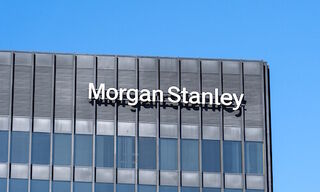A Hong Kong court delivered a liquidation order this week to troubled property giant China Evergrande. The process is expected to be lengthy, complex and uncertain.
On Monday, China Evergrande received an official order from High Court Justice Linda Chan to liquidate due to an «obvious lack of progress» in presenting a viable restructuring plan. Eddie Middleton and Tiffany Wong Wing-sze, managing directors of consulting firm Alvarez & Marsal, have been appointed as the provisional liquidators.
After first missing an offshore bond coupon payment in 2021, Evergrande is entering its final chapter. But the road to the end could be an uphill battle for offshore creditors of the world’s most indebted developer.
Cross-Border Legal Challenges
One of the most noteworthy challenges is the enforcement of the liquidation order in mainland China where more than 90 percent of Evergrande’s $240 billion in assets are located, according to a court filing.
«There may be situations where the mainland courts will refuse to recognize Hong Kong winding up orders,» said Hong Kong’s Department of Justice in response to a query from «Financial Times».
«Independent Legal Entities»
Indeed, there is a precedent that such a situation could play out favorably for offshore creditors. In 2021, the wind-up of Samson Paper, a paper trading and manufacturing company, marked the first Hong Kong liquidation proceeding recognized by a mainland court in Shenzhen.
Nonetheless, there are already signs that a cross-border wind-up may be difficult. According to Evergrande CEO Shawn Siu in an interview with Chinese financial news firm «21jingji» (in Chinese language), the liquidation order issued was aimed at Hong Kong-listed China Evergrande and is expected to have no impact on the group’s domestic and overseas units as they are «independent legal entities».
Unfinished Projects
Legal challenges and onshore creditors aside, Evergrande will also need to prioritize the delivery of projects to an estimated 1.5 million homebuyers who have already paid the developer, further limiting the assets that could be recouped.
According to its 2022 annual report, Evergrande has over 1,200 projects that are at different stages of progress, from near completion to under construction.
Ripple Effect
The liquidation is likely to impact the broader real estate market. In addition to the confidence of buyers, who will be closely watching how unfinished homes will be handled, other developers could also be affected as government support could be diverted to focus on Evergrande.
«Evergrande's winding-up order may accelerate the negotiation process of other developers’ dollar debt restructuring,» said John Lam, head of China and Hong Kong property research at UBS in a client note.
Shadow Banking Risks
What’s more, the ripple effect could extend beyond, most notably, to the shadow banking system where numerous wealth management products have historically delivered attractive yields linked to the property sector.
There are already signs of trouble with major wealth firm Zhongzhi recently filing for bankruptcy after payments were missed for dozens of products linked to a trust firm it controls.

























